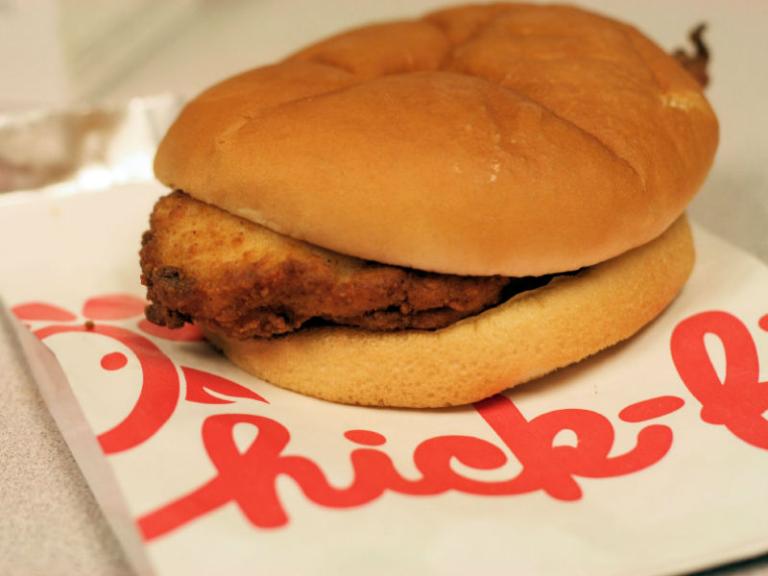 There is an atmosphere of fear and division in America today. People have stopped talking to each other about important issues, and the news is dominated by rage and violence. This lack of dialogue has deepened the gap further, and few people have been willing to try and reopen the lines of communication. Stephen Baldwin, however, has decided to try and bridge the divide that has opened in America. In his new show, “The Great American Pilgrimage,” Stephen Baldwin and his friend, Max Keiser, decided to restart the dialogue that has been lost in America by roadtripping across the U.S. and asking ordinary Americans a simple question: “What is America to you?” The show features conversations with everyone from a man who makes wood sculptures with a chainsaw to Hurricane Harvey victims, farmers, immigrants and a woman running for the U.S. Senate. The first season, with the pilot episode, ranges over ten states in the course of 16 half-hour episodes.
There is an atmosphere of fear and division in America today. People have stopped talking to each other about important issues, and the news is dominated by rage and violence. This lack of dialogue has deepened the gap further, and few people have been willing to try and reopen the lines of communication. Stephen Baldwin, however, has decided to try and bridge the divide that has opened in America. In his new show, “The Great American Pilgrimage,” Stephen Baldwin and his friend, Max Keiser, decided to restart the dialogue that has been lost in America by roadtripping across the U.S. and asking ordinary Americans a simple question: “What is America to you?” The show features conversations with everyone from a man who makes wood sculptures with a chainsaw to Hurricane Harvey victims, farmers, immigrants and a woman running for the U.S. Senate. The first season, with the pilot episode, ranges over ten states in the course of 16 half-hour episodes.
Stephen Baldwin does not so much star in “The Great American Pilgrimage” as much as work to host a conversation that has been far too neglected in recent years. “The experiment that is ‘The Great American Pilgrimage’ is this,” Stephen said. “What would happen if we went out fully intending to have some fun and host a conversation where what we do is mostly listen? So Stephen Baldwin…is just a guy hosting a conversation to the best of his ability and letting everyone say what they think America is and why.”
Stephen and Max began their journey in Venice Beach, California before moving on to Phoenix, Arizona; Denver, Colorado; and Corpus Cristi and Beaumont, Texas. At each point Stephen and Max do their best to make sure the conversation is organic and avoid using scripts. “What always allowed [the people spoken to on the show] to feel like they could speak their mind was that the conversation was organic,” Stephen said. “It wasn’t me or Max saying, ‘Did you know this?’…Unguarded, I think is a good word to describe these exchanges.” Stephen admits that the discussions have gotten uncomfortable a few times, but he says that part of the reason for the ease of dialogue is the sense of humor the show brings. Stephen described it as “crazy like a fox,” and Stephen and Max have filmed several of the conversations dressed as George Washington or Abraham Lincoln.
Though the first season of the show has not finished running, Stephen has already found some common ground between Americans. He described a conversation that he was disappointed did not make the final cut of the show but perfectly illustrated one way Americans can bridge the divide that has formed in the country. “This guy was talking to me,” Stephen said, “and we both made the observation that..in this particular moment, we were both just dads. It was really kind of a cool moment…and I said, ‘Right now, it doesn’t matter who we voted for. We’re both just dads who want the best for our daughters.” Stephen also found that most people believe that the dialogue needs to be reopened in America even if they are unsure of how to restart the discussion themselves. “Issues have been so polarized in certain ways by the media and the messages there of. I think we are at the tipping point where folks from all walks of life are saying ‘Hey, we can’t just keep ignoring each other. We need to find the best way forward and understand each other a little better.’”
Stephen himself feels that the dialogue in the U.S. desperately needs to be reopened in order to keep the divide from eroding America further. “I’m actually a little freaked out,” Stephen said. “I think ‘Why am I scared to walk down the street and smile at people?’ I’m half-joking and half-serious, but we better start talking, or it’s really going to get stupid in America.”
“The Great American Pilgrimage” airs at 7:30 on Sunday nights and is available on RT.com. Stephen was proud to say that the episodes had received “really good numbers” so far. “The Great American Pilgrimage” is a bit different from RT’s usual content, but Stephen seemed glad to be part of RT’s branching out.
Working with RT was a unique experience for Stephen. “I’m not dealing with a studio environment,” Stephen said, “I’m doing a news channel backed by the Russian government.” Showcasing the humor present throughout both his interview and “The Great American Pilgrimage,” Stephen laughed and declared that, “I am colluding with the Russians. It’s official!”
In addition to infusing “The Great American Pilgrimage” with his sense of humor, Stephen said that his faith has also influence his work on “The Great American Pilgrimage.” “[To have these authentic conversations] someone has to feel like you’re genuine and your motivation is real and true. My faith has blessed me with this more than anything. I really, really want to know what [other people] think. They’re connecting with that…Everywhere we go there is a fear that occurs in putting your head up and loving your neighbor…If I didn’t have my faith, I don’t think I could embark on such a pilgrimage seriously…So to try and do something this wacky, while still doing something I believe could be a blessing to a lot of folks, even if it’s just through entertainment when everything coming out of the TV is doom and gloom, it’s only by my faith that I have the strength to do that and not get discouraged myself.”
During filming, Stephen consciously tries to avoid being the stereotypical Hollywood star in his conversations. “When many of these Hollywood types come out,” Stephen said, “They tell twenty minutes of jokes to set the mood. I’m not pretending to be as intelligent as Jimmy Kimmel and so qualified to speak on certain platforms.” Again, Stephen laughed and declared, “That’s a dig! You tell them Baldwin said to say that’s a dig!”
On a more serious note, Stephen said that for the show things are going “so far so good. People really feel like this idea is timely, and they are embracing it.” He is hopeful that viewers watching “The Great American Pilgrimage” will join him on his journey across the nation and “learn something. But,” he said, “it might also have you to have a few thoughts about yourself. That’s the hope.”


